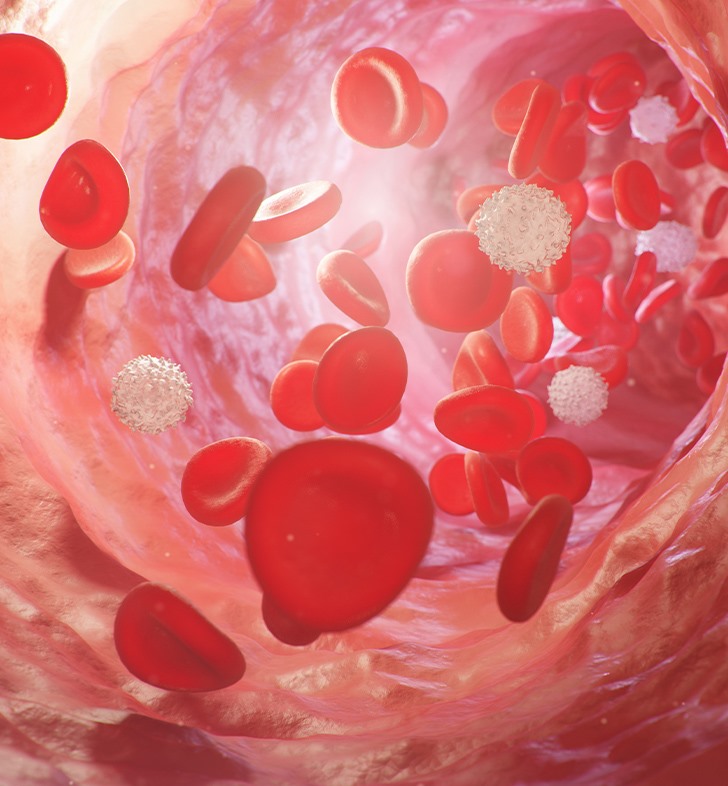
Blood Clots
What is a blood clot? Blood clots are gel-like collections of blood that form in your veins or arteries when blood changes from liquid to partially solid. Clotting is a normal function that stops your body from bleeding too much when you get hurt. However, blood clots that form in some places and don’t dissolve on their own can be dangerous to your health. Normally, a blood clots start as a response to injury of a blood vessel. At first, the blood stays in one place. Two substances — platelets (a type of blood cell) and fibrin (a firm string-like substance) — combine to form what is called a platelet plug to stop up the cut or hole. When a blood clot forms where it should not have developed, it is called a thrombus. A blood clot is also called a thrombus. The clot may stay in one spot (called thrombosis) or move through the body (called embolism or thromboembolism). The clots that move are especially dangerous. Blood clots can form in arteries (arterial clots) or veins (venous clots). The symptoms of a blood clot, and the recommended treatment, depend on where a clot forms in your body and how much damage it could cause. Knowing the most common blood clot signs and risk factors can help you spot or even prevent this potentially life-threatening condition.
Which blood clots pose the most health risk? Any blood clots that form in arteries (arterial clots) or veins (venous clots) can be serious. You should call your healthcare provider immediately if you suspect a blood clot. A clot that forms in one of your body’s larger veins is called a deep vein thrombosis (DVT). A stationary blood clot, or one that stays in place, may not hurt you. A blood clot that dislodges and begins moving through the bloodstream can be harmful. One of the most pressing blood clot concerns is when a DVT makes its way to your lungs and gets stuck. This condition, called pulmonary embolism (PE), can stop blood from flowing and the results can be very serious, even fatal. In fact, as many as 100,000 people in the United States die from DVTs and PEs every year. Arterial clots in the brain are called strokes. Clots can form in the heart arteries, causing heart attacks. Blood clots can also form in the abdominal blood vessels, causing pain and/or nausea and vomiting. You don’t need to be worried about blood clots that you might see during your period causing these kinds of symptoms or effects.
Who is most at risk for blood clots? Some risk factors put certain people at higher risk for developing a blood clot. Blood clots become more common as people get older, especially when they are over age 65. Long hospital stays, surgeries and trauma may significantly increase your risk of blood clots. Other factors can increase your risk to a lesser degree. You might be more at risk if you: • Take birth control pills or hormone replacement therapy. • Are pregnant. • Have cancer, or have been treated for cancer. • Have a family history of blood clots, or a specific condition, such as Factor V Leiden disease, antiphospholipid syndrome or polycythemia vera, that makes clots more likely. • Have coronavirus disease 2019 (COVID-19). Some factors are based on lifestyle choices. Risks might be higher if you: • Have overweight/obesity. • Live a sedentary (or inactive) lifestyle. • Smoke cigarettes.
What are the most common symptoms of
a blood clot?
Blood clot symptoms will depend on
where a clot forms in your body. Some people may experience no symptoms at all.
Blood clots can occur in the:
Abdomen: Blood clots in the belly area can cause
pain or nausea and vomiting.
Arms or legs: A blood clot in the leg or arm may
feel painful or tender to the touch. Swelling, redness and warmth are other
common signs of blood clots.
Brain: Blood clots in the brain (strokes) can
cause a range of symptoms, depending which part of the brain they affect. These
clots may cause problems speaking or seeing, inability to move or feel one side
of your body and sometimes seizure.
Heart or lungs: A blood clot in the heart will
cause symptoms of a heart attack such as crushing chest pain, sweating, pain
that travels down the left arm, and/or shortness of breath. A blood clot in the
lungs can cause chest pain, difficulty breathing, and sometimes can lead to
coughing up blood.
How are blood clots diagnosed?
Blood clot symptoms can mimic other
health conditions. Doctors use a variety of tests to detect blood clots and/or
rule out other causes. If your doctor suspects a blood clot, he or she may
recommend:
- Blood tests can, in some cases, be used to rule
out a blood clot.
- Ultrasound provides a clear view of your veins
and blood flow.
- CT scan of the head, abdomen, or chest, may be
used to confirm that you have a blood clot. This imaging test can help rule out
other potential causes of your symptoms.
- Magnetic resonance angiography (MRA) is an
imaging test similar to a magnetic resonance imaging (MRI) test. An MRA looks
specifically at blood vessels.
- V/Q scans test circulation of air and blood in
the lungs.